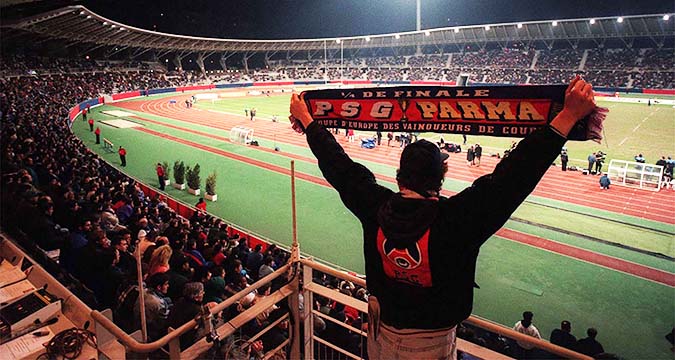
Super League celebrates its 25th birthday on Monday, having kicked off on 29 March 1996 in Paris.
According to Gary Hetherington, however, it has failed to fulfil its potential, and believes that many of the initial plans were “Fantasy Island stuff”.
Hetherington has been the Leeds Rhinos chief executive since 1997 but was the Sheffield Eagles owner, chairman and head coach when they crossed the Channel to provide the opposition to Paris St Germain on the competition’s maiden voyage.
Despite a club-best finish of fifth place in 1995-96, the sport’s final winter season, the Eagles were beaten 30-24 by the Parisians, who went on to struggle thereafter.
But after a quarter of a century of summer rugby, many of the plans haven’t come to fruition, despite the success of the opening night.
“Once the fixture was confirmed, it created a lot of excitement in the club,” Hetherington recalls.
“There was so much uncertainty and unknown in the game at the time, but we went there full of excitement. I think we took about 1,500 people and many were watching their first game.
“We wanted to start the season with a win, and we were up against a team of unknowns. We’d done well the season before and were favourites.
We didn’t win but it was a great occasion. The fans came flooding in and we ended up with 17,500 and there was a carnival atmosphere.
“I was disappointed to lose, but the win was a real boost for the Paris club, the game in France and for the Super League concept.”
At the end of an exciting but difficult year, Hetherington concluded that Super League hadn’t cured the game’s ills and that the TV money wasn’t enough to aid the switch to full time.
“When we look back, there was a lot of chaos in the game,” he said.
“Big clubs like Leeds were struggling financially, and there were real problems in the game.
“Rugby League was bitterly divided, with clubs like Featherstone and Widnes ejected and Keighley denied promotion. There was a lot of rancour and bad blood.
“Only Wigan had been a full-time entity and suddenly all clubs had to become full time. A lot of people didn’t know how it would work. We’d never had access to the players all day, every day.
“Even though we got £600,000, we had to go full time, and that ate up all the money.
“The facilities throughout the game were quite archaic as well, but to counter the problems there was a lot of excitement in Rugby League back then.
“A major problem was that there was a lot of over-ambition with every major European city supposedly having a Super League club one day. It was Fantasy Island stuff and none of the plans were underpinned by a strategic plan or the necessary finances. It was all hopes and dreams.
“Some good stuff did happen, like the creation of the play-offs and the Grand Final in 1998, and some new facilities, but in many ways, when we look back, the game didn’t handle the transition well and there hasn’t been the significant progress we hoped for.”
The above content is also available in the regular weekly edition of League Express, on newsstands every Monday in the UK and as a digital download. Click here for more details.
